When multiple data variables are accommodated in a project, the time and spatial grids of those variables must be identical. As such, you must control the data other people enter. That’s when you need Data Validation. Microsoft Excel makes this job simple.
How to use Data Validation for Excel Cells
Data validation feature in Excel lets a user control what can be entered into a cell or provide a predefined list of acceptable entries to eliminate possible mistakes or errors. It is applied via rules defined in Excel’s ‘Data’ tab, under the ribbon menu. The process involves:
- Enter Data Validation Details
- Customize Input Message
- Customize Error Alert
One of the most common data validation uses is to create a drop-down list.
1] Enter Data Validation Details
Open the Microsoft Excel file, select the cells you would like to limit.
Go to the ‘Data’ tab located on the Ribbon menu.
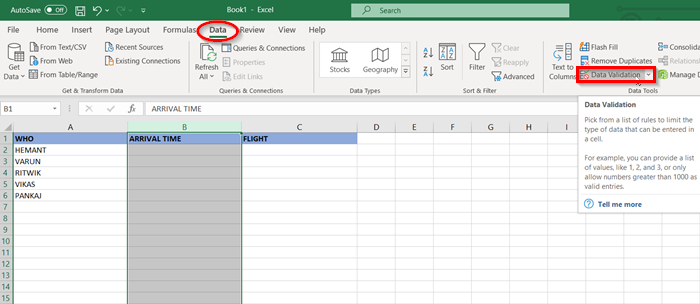
Under the ‘Data Tools’ select ‘Data Validation’ option.
When the Data Validation window opens, you’ll see several controls. You can make sure that only numbers are added or a particular text length, like a phone number.
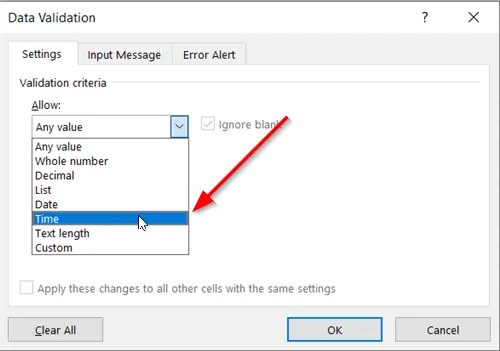
In the case of our example, let us select ‘Time’ to choose between the times we are open.
Specify the Start Time and the End Time.
2] Customize Input Message
Now, switch to ‘Input Message’ tab.
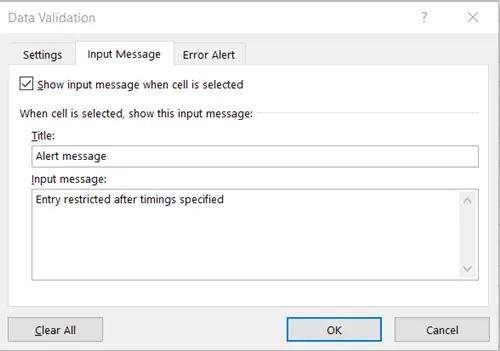
Customize the input message that you would like to appear when something different is entered against what has been specified.
3] Customize Error Alert
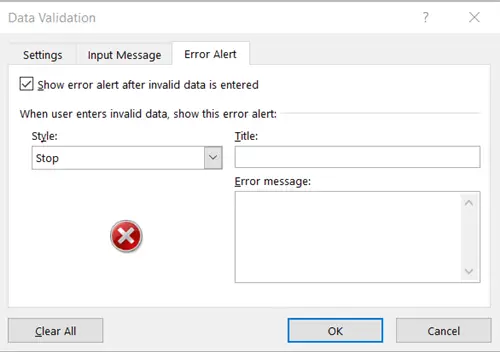
Switch to the ‘Error Alert’ tab.
Enter the message you would like to appear or simply choose to keep the defaults.
In the end, hit the ‘OK’ button.
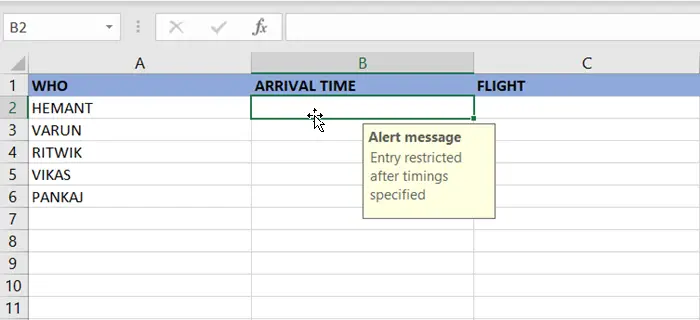
Now, when one of the cells is selected, everyone will see the input message reminder where timings can be entered.
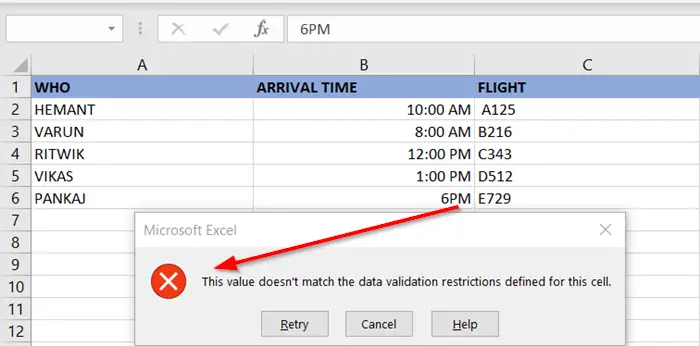
However, when the timing entered is outside the range, an error message will be displayed.
In short, Data validation can display a message to a user telling them what is allowed and what is not!
Read next: How to record a Macro to create Shortcut Button for Multiple Formats in Word and Excel.
Leave a Reply